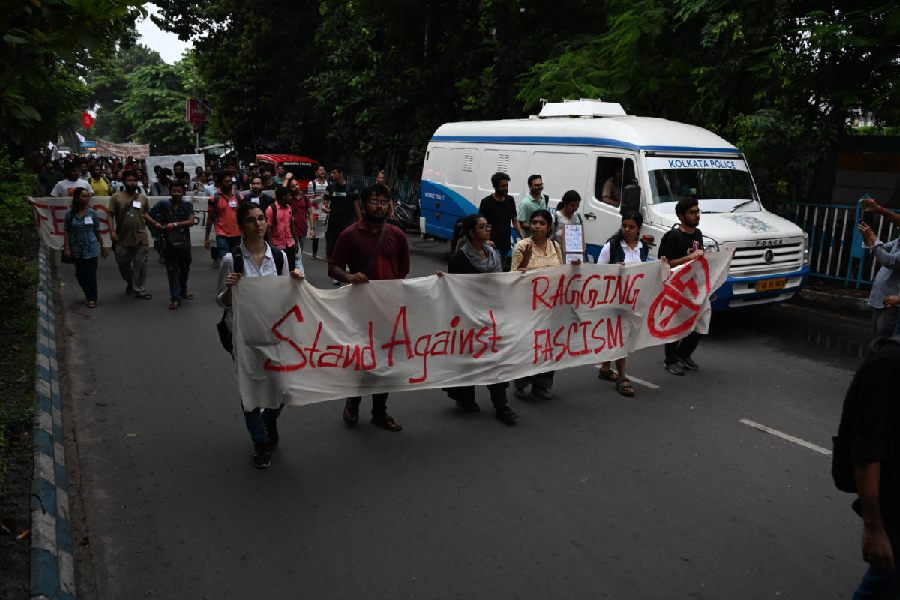The executive council of Jadavpur University (JU) “was reluctant to implement the recommendations” of the anti-ragging committee and students’ welfare board “in a number of cases”, says a report by a university committee.
“Strong and decisive leadership by the highest authority may help the university to bring an end to crimes like ragging,” says the report of the committee, which probed the death of a 17-year-old boy who was allegedly ragged in the university’s main hostel.
“Executive Council should be strict enough to implement the resolutions taken by the Anti-Ragging Committee and Students’ Welfare Board. Evidently, in a number of cases, the EC was reluctant to implement the recommendations received from such bodies.”
The council is JU’s highest decision-making body.
The committee, which has exposed the failure of the institutional mechanism in curbing ragging, has said the executive council should take “the strongest possible step” if any incident of ragging takes place in a hostel or on the academic premises.
A scrutiny of the report will make it clear why the committee has asked the council to act in a manner expected of it after the death of a student who, the report says, “was singled out for ragging” in the main hostel by senior students on the night of August 9.
The report refers to the punishment the university announced for two students found guilty of ragging in 2013, when Souvik Bhattacharya was vice-chancellor. But the decision could not be implemented.
According to the report, apart from aggressive opposition by the students’ union in the engineering and technology faculty and lenient persuasion by a teacher
of the “department of computer science and engineering & member, anti-ragging committee”, the “indifferent attitude” of the university was as
much responsible for the inaction.
The report says it was found that during the tenure of successive VC, orders to suspend students held guilty of ragging were not implemented and the accused “passed their engineering courses in due regular time”.
“Evidently, in the face of such aggressive opposition by the Students’ Union (here FETSU), and lenient persuasion by a representing Faculty, and consequent indifferent attitude of the highest authority (executive council) in implementation of suspension orders, the realization of the anti-ragging regulations as proposed by UGC seems to be a far-fetched goal,” says the report.
A JU official said the executive council must display resolve in meting out exemplary punishment to those found guilty of ragging the first-year student who died.
“They must show decisive leadership if they care for justice,” he said.
Will the executive council take the recommendations of the committee seriously?
“The report has been forwarded to the anti-ragging squad. The squad, which is a statutory body in accordance with the UGC guidelines, has been given 15 days to give its opinion. There are questions as to why the squad was not engaged in the first place to carry out the probe. Let the squad give its report and then we will take a call,” officiating VC Buddhadeb Sau told Metro.
A notice on reconstitution of the squad will be issued on Thursday.
A JU official said a meeting of the executive council has been convened on September 26. “It is unlikely the report of the squad will be tabled at that meeting,” the official said.
The report says: “The University needs to abide by all the steps mentioned by UGC in the guidelines for preventive measures for ragging.”
“There have to be separate hostels for both UG 1 (first-year) and UG 2 (second-year) students within the campus where no other students are to be allowed….”
